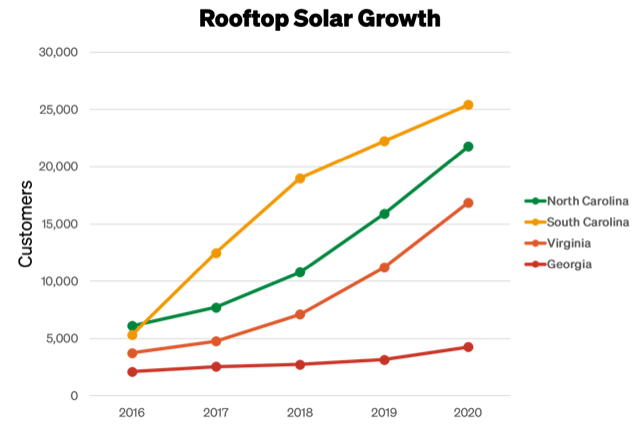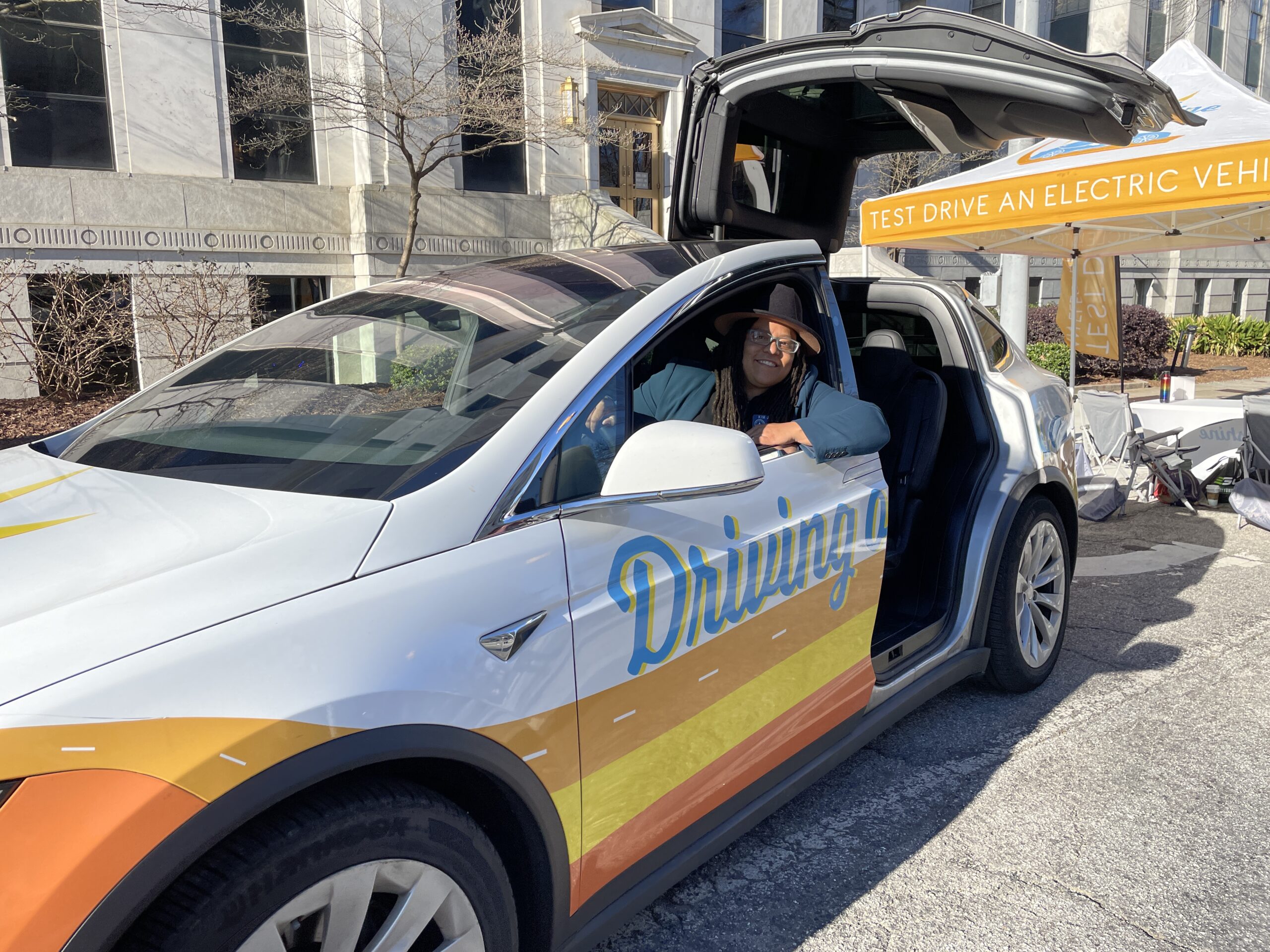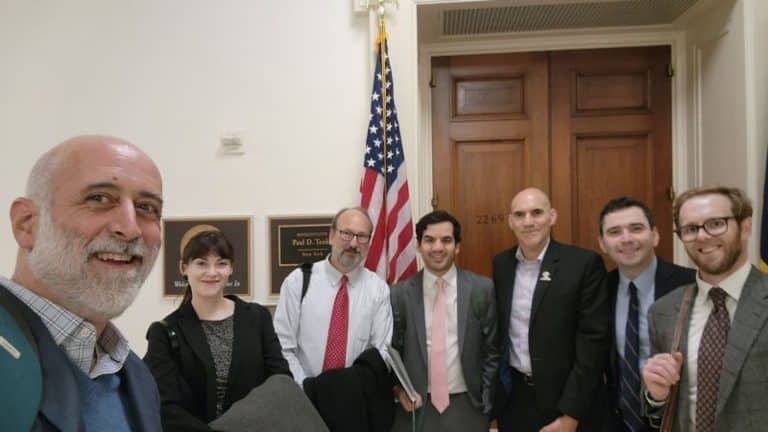Update, March 17, 2022: This year’s legislative session showed progress in advancing environmental policy, with strong dialogue about critical issues even though none of the bills discussed in this blog post made it past crossover day this week. However, we at SACE look forward to seeing these policies heard in committee and reintroduced next year. To keep updated on how you can help advocate for clean energy policy in Georgia, please let us know you’d like to get involved with the form here.
—
The five policies listed below are of particular significance for Georgia’s transition to clean energy and its role in addressing the climate crisis. The fate of these bills for this year will be decided in just the next few weeks, as Georgia’s legislative session ends on April 4.
Yet an even closer deadline stands on March 15, also known as ‘Crossover Day,’ which is the date by which any bill must be passed by one chamber of the legislature (either House or Senate) in order to have a chance at being signed into law this year.
[button color=”green” url=”https://secure.everyaction.com/g2Fa1xjEhECYcnytuqJ72Q2″]Contact your legislator to support good energy policy[/button]
Solar Legislation
Fair Credit for Georgia’s Solar Customers (SB 583 / HB 1491 / SB 299 / HB 1083):
What it does: Ensures utilities credit customers who have solar panels for the fair value of the solar energy they return to the grid by enacting “monthly netting,” which allows each kilowatt-hour (kWh) of solar energy sent to the grid to offset any kWh pulled from the grid at a one-to-one rate until the end of the monthly billing cycle.
Why this is important:
- Customers deserve fair compensation for the solar power they produce at their homes and businesses and send to the grid for other customers to use.
- In 2019, the Georgia Public Service Commission (PSC) ordered Georgia Power to offer a pilot program of monthly netting for the first 5,000 customers. This cap was reached by mid-2021, locking most Georgians out of any fair solar program.
- The lack of fair rooftop solar policies has set Georgia far behind on rooftop solar development compared to neighboring states (see graph).
- Utility-scale solar is highly valuable, but rooftop solar shouldn’t be left behind while only utility-scale solar advances. Rooftop solar has unique benefits for Georgians: reducing bills, contributing to a reliable grid, and creating jobs. In fact, rooftop solar generates ten times as many jobs per megawatt as utility-scale solar.

Homeowners’ Solar Bill of Rights
[button color=”blue” url=”https://www.legis.ga.gov/legislation/59730″]Read HB 483[/button]
What it does: Prevents homeowners’ associations (HOAs) from telling people they can’t put solar on their own rooftops.
Why this is important:
- We live in a country where individuals have the freedom to make choices about what they do with their property, and that should include clean energy choices.
- HOAs shouldn’t be able to block individuals from choosing clean, renewable energy for their homes.
- People deserve the right to decide for themselves whether rooftop solar makes sense for their personal property.
- Rooftop solar is a good investment for homeowners–it can raise property values and provide clean electricity.
Electric Transportation Legislation
Electric Vehicle Charging Stations
[button color=”blue” url=”https://www.legis.ga.gov/legislation/61558″]Read HB 1133[/button]
What it does: Allows businesses to sell electric vehicle (EV) charging by the kWh instead of by the minute.
Why this is important:
- When EV drivers charge at public charging stations, they deserve a fair and transparent transaction.
- Current law only allows private EV charging stations to charge per minute rather than per kWh even though EV drivers are buying electricity, not time.
- Generally speaking, the more expensive and high-performing the EV, the faster it charges. For instance, a lower-cost Nissan Leaf plugged into a fast charger can draw 12.5 miles of range per minute, while a luxury Porsche Taycan can draw 15.5 miles in that same minute. That means when paying by time at the charger, a Leaf driver charging next to a Taycan driver is paying more for the same electricity. Charging by the kWh is fair for customers, regardless of what kind of EV they drive.
- Additionally, allowing charging by the kWh aligns Georgia with neighboring states and supports regional businesses like fuel retailers who need a regionally consistent way of pricing EV charging to support customer satisfaction.

Direct Sales and Service of Electric Vehicles by Manufacturers
[button color=”blue” url=”https://www.legis.ga.gov/legislation/59687″]Read HB 460[/button] [button color=”blue” url=”https://www.legis.ga.gov/legislation/61445″]Read SB 398[/button]
What it does: Allows manufacturers to sell and service EVs directly to customers.
Why this is important:
- Current auto dealer franchise law largely prohibits direct-to-consumer sales of EVs by manufacturers, effectively shutting new EV companies out of the Georgia market and limiting Georgians’ EV options.
- In 2015, Tesla secured an exemption to offer direct sales and service at five locations across the state. Other EV manufacturers, such as Rivian, should be entitled to a similar market opportunity. Otherwise, Georgians will have to go out-of-state to buy and service EVs, even ones made in GA.
- Georgia is becoming a hot spot for EVs, and this bill allows Georgians to reap more of the benefits of EV industry development here at home. This bill gives consumers greater access to the expanding EV market, ensuring they can buy and service their EV of choice right at home in GA.
Energy Equity Legislation
Georgians First Fund
[button color=”blue” url=”https://www.legis.ga.gov/legislation/62494″]Read HB 1487[/button]
What it does: Creates a fund out of Georgia Power’s excess profits to help make energy more affordable for customers with low incomes through bill assistance, energy efficiency and weatherization, solar power, and more; requires the utility to publicly report data concerning the quality of service to residential customers.
Why this is important:
Georgians face some of the highest electricity bills in the nation. Studies have found that Atlantans have some of the most unaffordable energy of metro areas across the country, with particularly heavy energy affordability burdens among older adults, Black, Hispanic, and households with low income.
- More than 1.2 million Georgians spend more than 6% of their household income on energy – an “energy burden” that is deemed unaffordable.
- Meanwhile, Georgia Power has raked in $10.4 billion in profits for shareholders over the last decade, while regularly making more profit at customers’ expense than state regulators allow. In four of the last ten years, the utility exceeded the maximum band over that target and was forced to return excess proceeds to ratepayers.
- This bill would redirect a tiny percentage of Georgia Power’s excess profits into the Georgians First Fund, which would help ease the affordability burden on hard-working people by offering bill assistance and investing in energy efficiency, weatherization, solar, and more.
- Specifically, the utility’s contributions to the fund would be 5% of amounts within the allowed band of the Return on Equity target set by the Public Service Commission, and 10% of amounts collected beyond the allowed band.
- The bill would also require the utility to publicly report data concerning quality of service to residential customers.
- According to the American Council for an Energy Efficient Economy (ACEEE), investing in energy equity “can reduce energy costs, create jobs, and promote the health, safety, and well-being of residents,” and we at SACE believe that Georgians deserve these benefits.
Take Action
Stay tuned! SACE will be monitoring these bills and will update our Georgia membership as the session continues.
[button color=”green” url=”https://secure.everyaction.com/g2Fa1xjEhECYcnytuqJ72Q2″]Contact your legislator to support good energy policy[/button]





